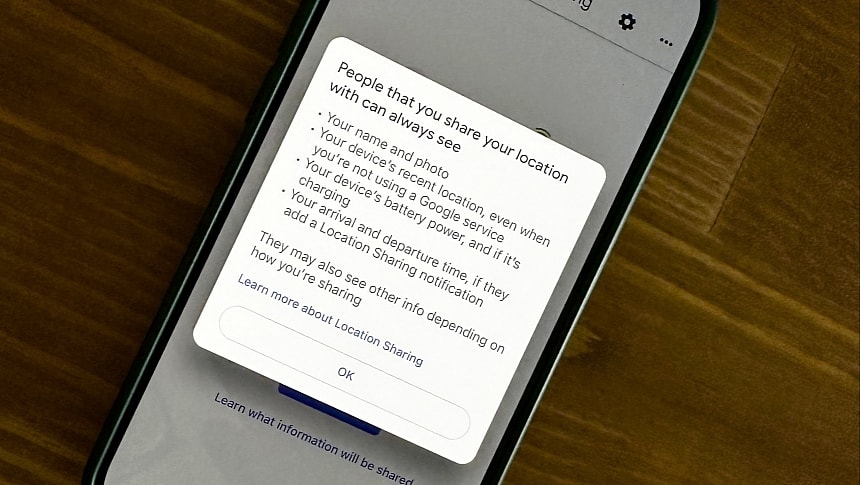Google Maps comes with a complete feature arsenal to help drivers navigate to their destinations, but the parent search company has also equipped the app with several extras to enhance the process. The location-sharing engine is a great way to let your significant other see your location on the map when you leave home from work.
However, authorities in India have found another purpose for this feature. The Supreme Court wants Google to provide a detailed description of how location sharing works, as authorities are trying to determine if forcing an accused person to share their location in Google Maps would be a privacy violation.
It all started in May 2022 when a court order allowed the suspect in a case registered under the Narcotic Drugs and Psychotropic Substances (NDPS) Act to be released on bail on the condition that the suspect shares their location on Google Maps with the investigation officer. In plain English, the suspect could only be released on bail if his whereabouts were always live on Google Maps.
Later court hearings dissected the case from a different perspective. Forcing an accused person to share their location on Google Maps could violate the right to privacy.
The court originally asked Google India to file a detailed affidavit regarding the PIN location sharing, but it now requests the company to help understand how the feature works and whether it could violate an accused person's privacy if used as a condition for bail.
Google's technical documents reveal that someone sharing their location on Google Maps exposes their name and photo, the device's recent location, the device's battery power and if it's charging, and the arrival and departure time if they add a location sharing notification.
The case is particularly important for Indian authorities, as location sharing in Google Maps could eventually become a widely adopted condition for releasing suspects on bail. Local authorities are specifically interested in the privacy implications following a 2017 case where the right to privacy was declared a fundamental right under the Constitution. The Supreme Court is now trying to understand if requiring a suspect to allow the investigators to monitor their whereabouts violates the 2017 verdict.
The location-sharing feature is live on all devices where Google Maps is available, so an accused person would be able to use it regardless of whether they own an Android device or an iPhone. The feature also requires location services to be enabled on the smartphone, allowing Google Maps to determine their location and share it with the defined contact.
Google didn't publicly comment on the request, but Google India has previously responded to the court's request for additional information. Further hearings in this case will take place later this year, with a verdict expected by December.
It all started in May 2022 when a court order allowed the suspect in a case registered under the Narcotic Drugs and Psychotropic Substances (NDPS) Act to be released on bail on the condition that the suspect shares their location on Google Maps with the investigation officer. In plain English, the suspect could only be released on bail if his whereabouts were always live on Google Maps.
Later court hearings dissected the case from a different perspective. Forcing an accused person to share their location on Google Maps could violate the right to privacy.
The court originally asked Google India to file a detailed affidavit regarding the PIN location sharing, but it now requests the company to help understand how the feature works and whether it could violate an accused person's privacy if used as a condition for bail.
Google's technical documents reveal that someone sharing their location on Google Maps exposes their name and photo, the device's recent location, the device's battery power and if it's charging, and the arrival and departure time if they add a location sharing notification.
The case is particularly important for Indian authorities, as location sharing in Google Maps could eventually become a widely adopted condition for releasing suspects on bail. Local authorities are specifically interested in the privacy implications following a 2017 case where the right to privacy was declared a fundamental right under the Constitution. The Supreme Court is now trying to understand if requiring a suspect to allow the investigators to monitor their whereabouts violates the 2017 verdict.
The location-sharing feature is live on all devices where Google Maps is available, so an accused person would be able to use it regardless of whether they own an Android device or an iPhone. The feature also requires location services to be enabled on the smartphone, allowing Google Maps to determine their location and share it with the defined contact.
Google didn't publicly comment on the request, but Google India has previously responded to the court's request for additional information. Further hearings in this case will take place later this year, with a verdict expected by December.















